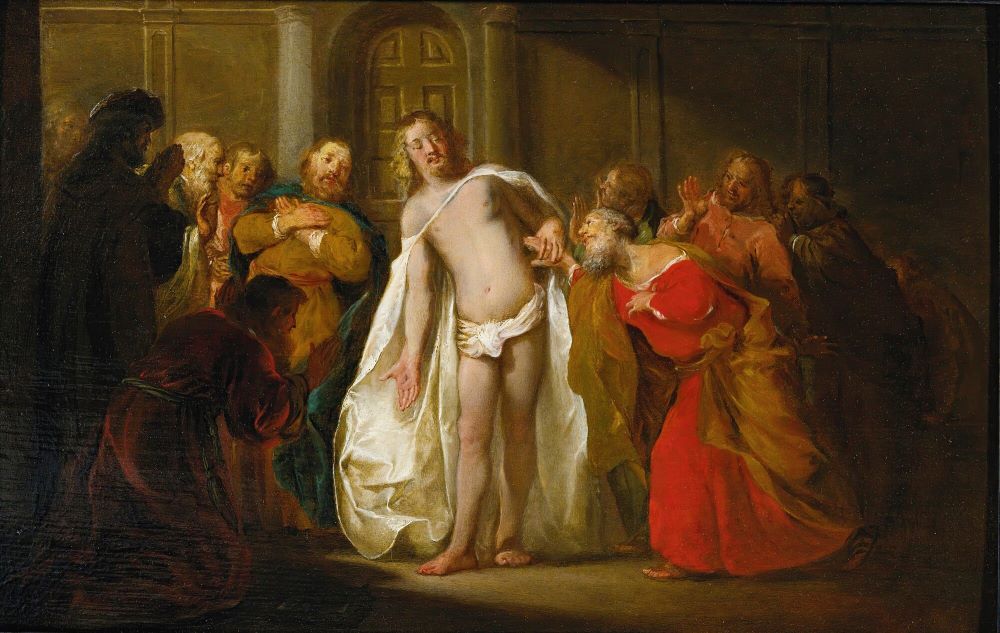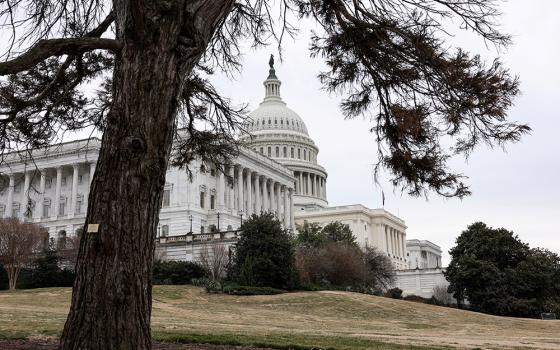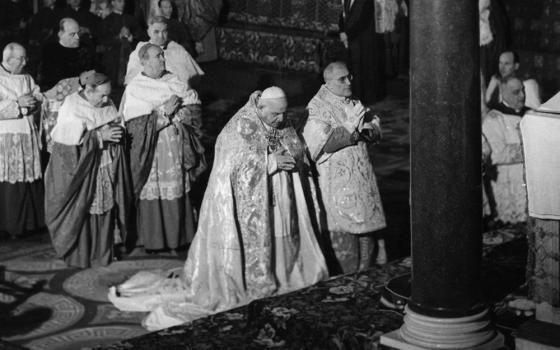
"Doubting Thomas" by Nicolaus Knüpfer (Dutch, 1603-1655) (Artvee)
"By this doubting Thomas, we are more confirmed in our belief than by the faith of the other apostles," says St. Gregory the Great. Sometimes, our doubts and trials help us to cling to God and to be a witness to the faith in Jesus, as taught by St. Thomas the apostle. The doubt of St. Thomas allowed him to trust and glorify God.
Some people, like the apostles, have firsthand experience of knowing Jesus. They were always with Jesus. But people like St. Paul heard about Jesus, who appeared to him. Their experiences produced in them an unfailing faith.
We learn from church tradition and Scripture that after the death of Jesus, the apostles were discouraged, and Jesus' appearance helped them gain confidence.
St. Thomas, who was not present at the first time of Jesus' appearance, doubted him. Later, Jesus appeared to the apostles when Thomas was present.
Human beings tend to doubt everything even when they believe in God. Sometimes, our doubts and agnostic beliefs help us trust God and God's work in our lives.
When doubt arises, it does not always represent a lack of trust, but rather an assurance of more. Here, St. Thomas, who did not see the risen Lord, told the other apostles: "Unless I see the nail marks in his hands and put my finger where the nails were, and put my hand into his side, I will not believe" (John 20:25).
In our lives too, we always have doubts about our lives, our vocation, and about our future. But our trust in the Lord makes us get up from the ground of hopelessness and walk to proclaim the good news — trusting the power of God's grace, providence, and mercy.
Our lives are like a boat that sails in a stormy sea. My father always reminds me of a phrase that strengthens my heart: "The one who planted the seed will never cease to water it."
The faith of St. Thomas teaches us to be stronger than our weakest spirit, which might tend to make us bystanders.
Advertisement
St. Thomas — whose Aramaic name te’ômâ, which is translated as "Didymos" in Greek, means "twin," is changed to the doubting Thomas. But when Jesus appears for the second time to the apostles, he shows his hands, legs and ribs to rejuvenate his faith.
He, like others, is an unlearned, simple fisherman from Galilee. Though rough, he encouraged the apostles when Lazarus has just died, despite the other apostles being stoned by the Jews in Judaea: "Let us also go, that we may die with him" (John 11:16).
And after his declaration of doubt-- insisting that he should see for himself the marks of the nails — Thomas then said, "My Lord and my God" (John 20: 28).
These beautiful words about St. Thomas remind us that faith is greater than the doubts of human beings. One tradition tells us that Thomas landed in Kerala, a southern India state, in AD 52 and was martyred in Mylapore, Chennai, south India.
Thomas was declared the Apostle of India by Pope Paul IV in 1972. Among Christians in India, he is revered as the country's patron saint, and July 3 is designated as Indian Christians' Day.
Taking a cue from St.Thomas, we could say, sometimes, our doubts are ways to make room for God and His presence in our lives, challenges and concerns. Such a state of doubt teaches us to look beyond ourselves and be led on the path of the grace of God.
Doubts in life also teach us to rely on God more than ourselves. We forget to realize our human inadequacy in everything we do and who we are, are just part of human vulnerability, imperfection and limitation. This certainly challenges us to seek God's guidance and inspiration in our lives and all that we do, either for ourselves or others.
There are times that some tend to despise St. Thomas for his state of doubt. Human as he was, he was ruthless in expressing his true sense of being practical and pragmatic, looking for empirical evidence about the Risen Lord. It was good, then, that Jesus appeared to him and cleared his doubt.
Knowing the narrative of St. Thomas, we need to realize the same state of doubt is present in each of us. In other words, nobody should despise us for being like St. Thomas at times. It might be a blessing in disguise. Our doubt must enable us to realize that God is present within us. In this way, doubting God and his power is no longer a weakness: It is the moment to go beyond our doubts and realize that God is present in and around us. We need to have that greater sense of faith and openness to know the fact of God's omnipresence. This calls for a deeper sense of the divine in us.
Finally, Thomas was a martyr. He gave his life for Jesus and his gospel. We may not become martyrs like Thomas. However, we need to be a martyr to our egos, selfishness and indifference that often dominate our life directions and life choices. We need to move on with solidarity with others, especially the poor, as Pope Francis often reminds us.
With solidarity, dialogue and reaching out to others in God's trust, we will be able to bring the good news of Jesus to others here and now. May St. Thomas pray for us and give us the courage to promote the ideals of Christ in the world more than ever.






